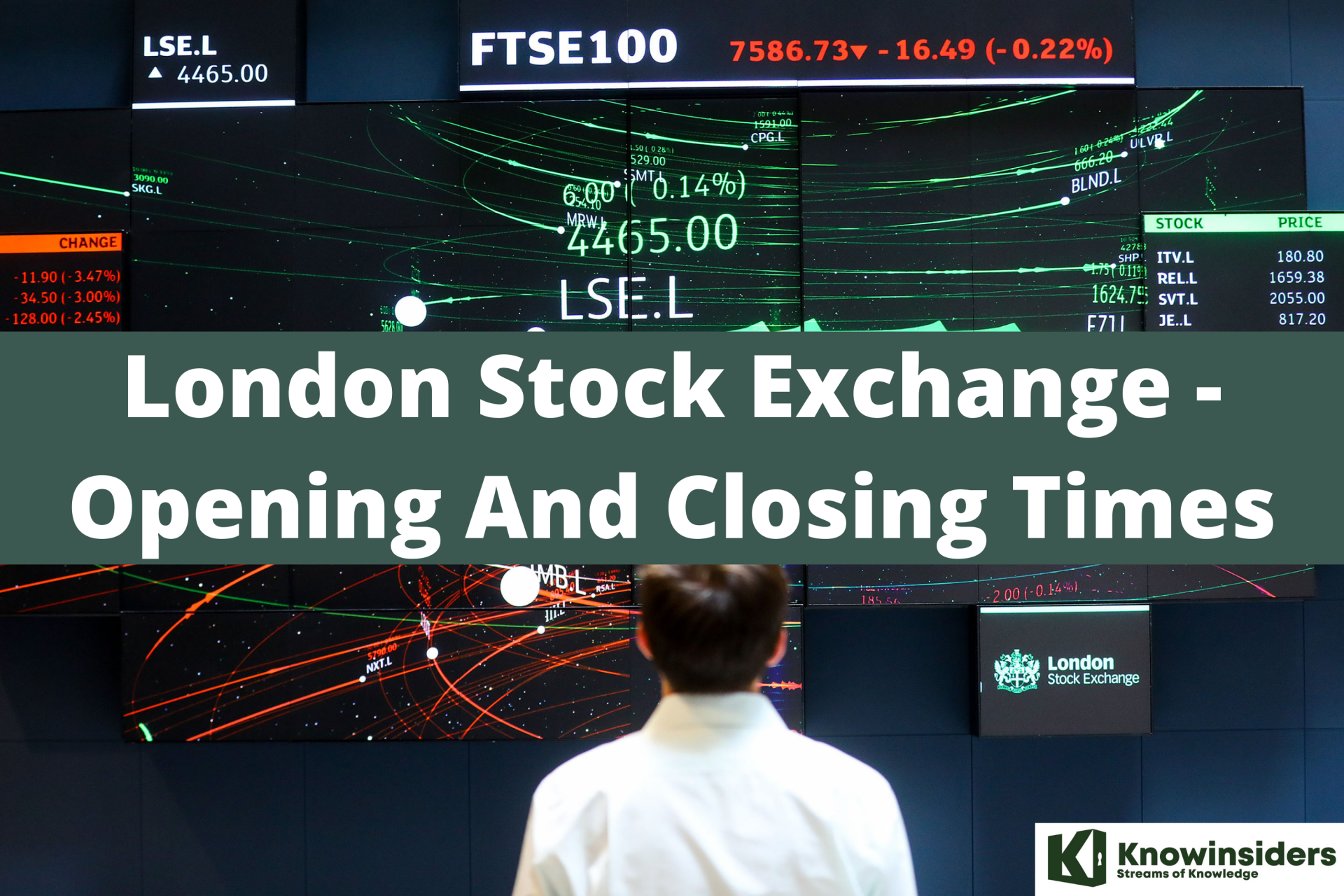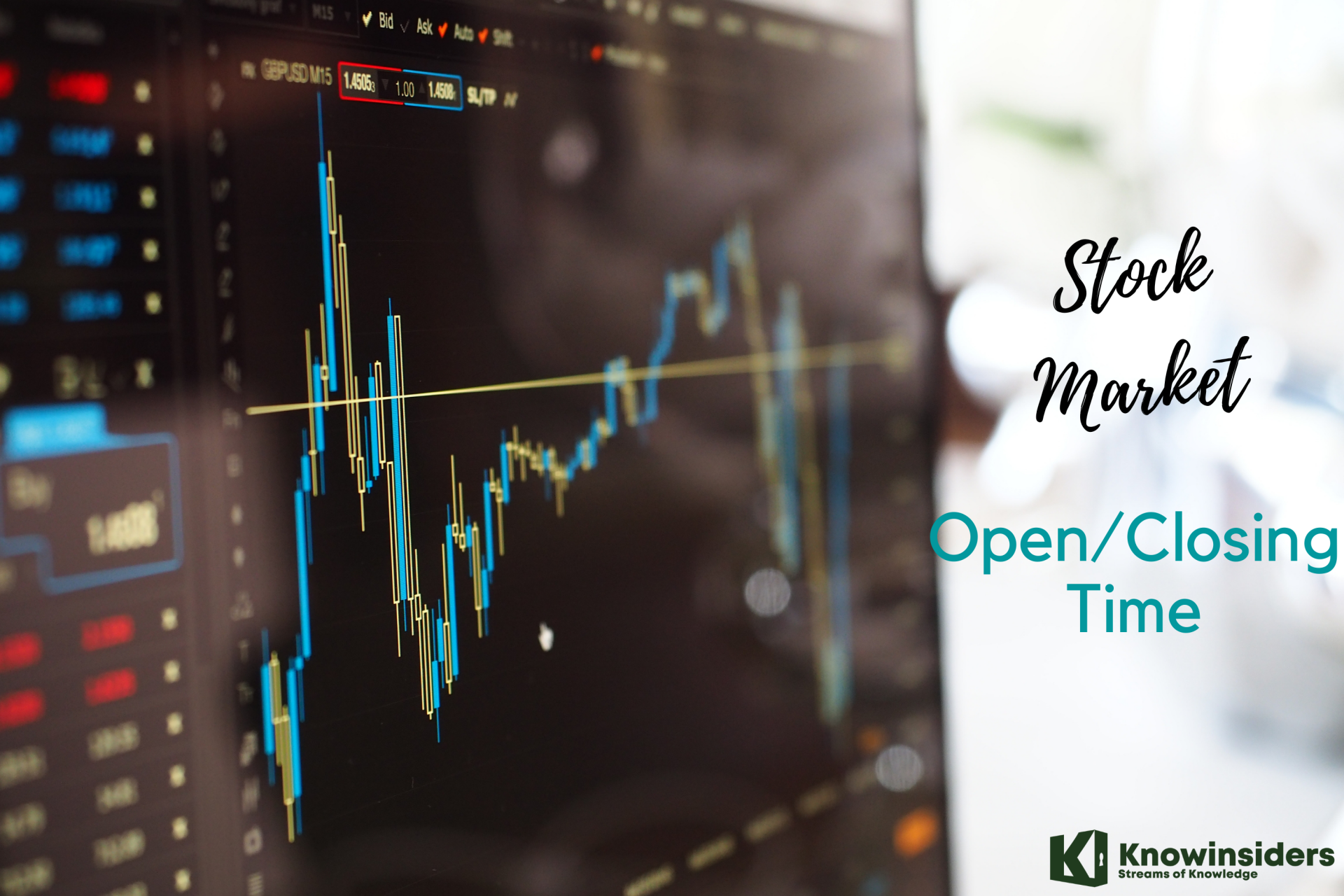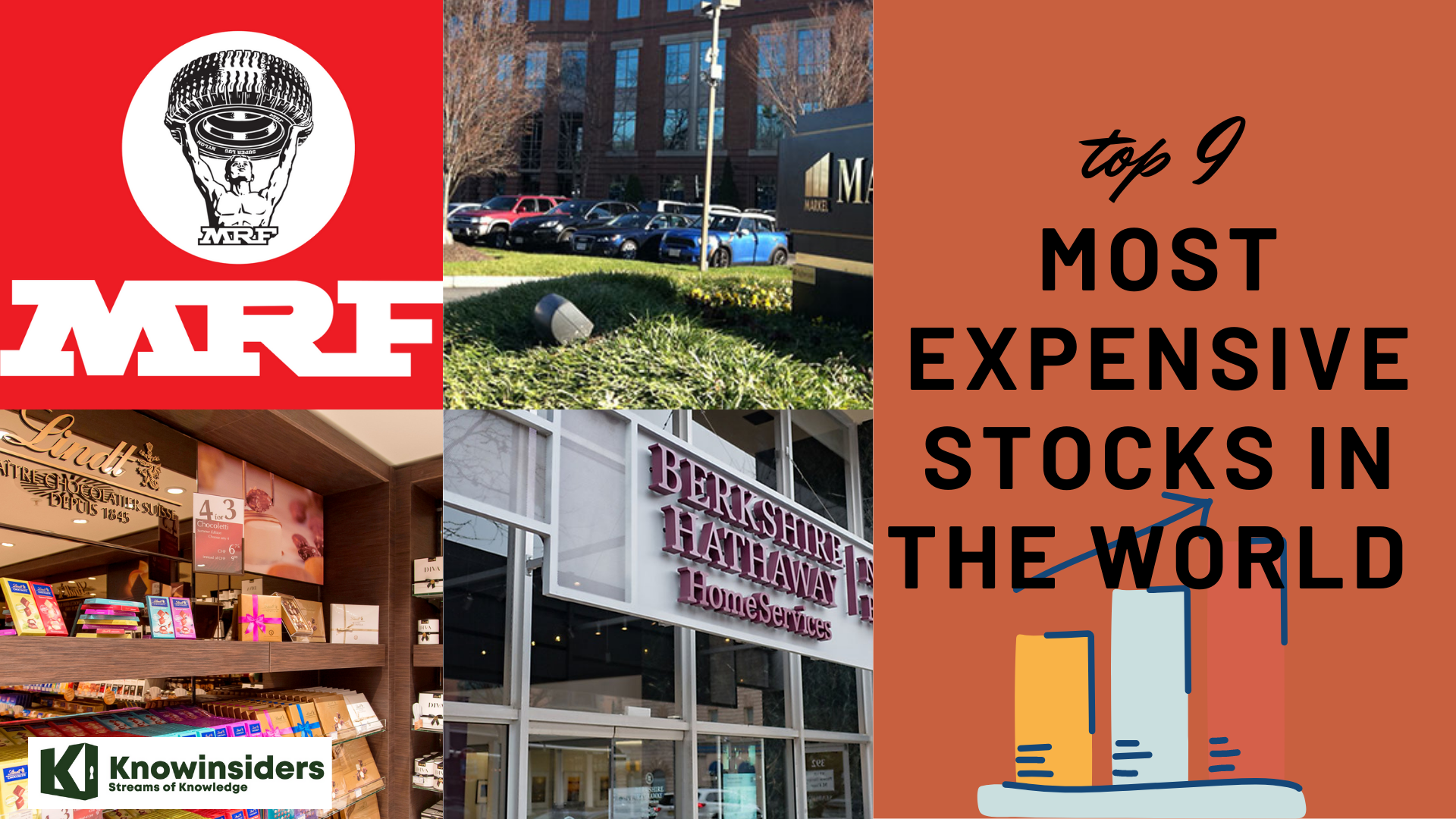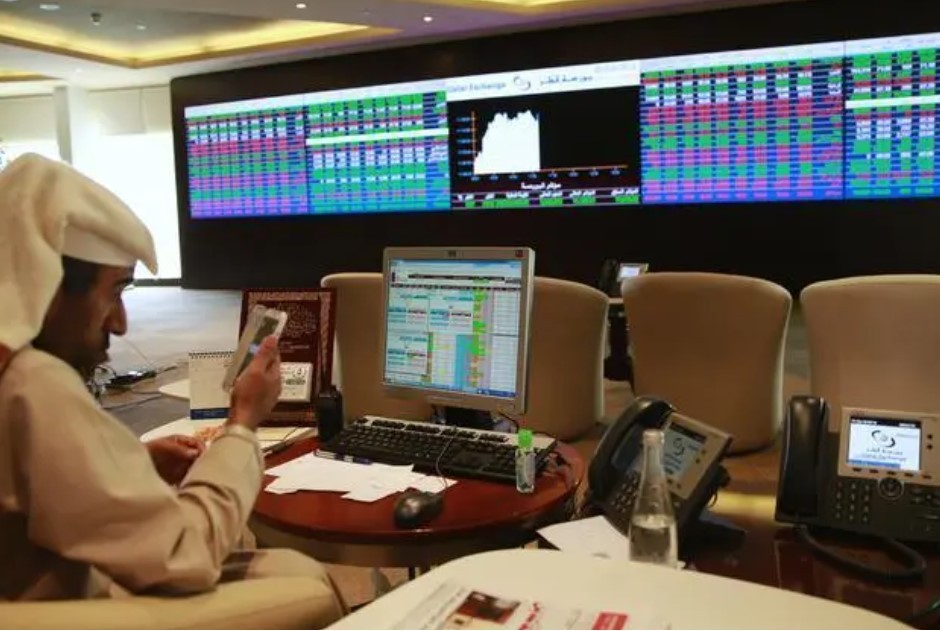What Time Does the UK Stock Market Open & Close?
 |
| London Stock Exchange - Opening And Closing Times |
The UK Stock market opening times are the hours that stock exchanges are open for business and reflect an exchange’s geographic location. Knowinsideers provide the information of opening and closing times as well as the UK Market (London Stock Exchange) holidays for all years.
What are stock exchange hours?
Stock exchanges across the world open at different hours for stock trading. For example, UK stock market hours will not reflect those in Hong Kong or Japan, due to the general difference in work politics and culture. Some stock exchanges also close for a lunch break, mainly those in Asia, whereas they do not in Europe and the Americas.
Stock market hours also vary compared to other financial markets. For example, forex market hours are generally 24 hours a day, from Sunday evening to Friday night. The three major trading sessions include locations in Tokyo (for Asia), London (for Europe), and New York (for North America).
The overlap of these trading hours means that clients are able to open and close positions at most hours within the forex market.
What Is the London Stock Exchange (LSE) and History?
The London Stock Exchange (LSE) is the primary stock exchange in the United Kingdom and the largest in Europe.
Originated more than 300 years ago, the regional exchanges were merged in 1973 to form the Stock Exchange of Great Britain and Ireland, later renamed the London Stock Exchange (LSE). The Financial Times Stock Exchange (FTSE) 100 Share Index, or "Footsie", is the dominant index, containing 100 of the top blue-chip stocks on the LSE.
The stock exchange is physically located in the city of London. In 2007, the London Stock Exchange merged with the Milan Stock Exchange, the Borsa Italiana, to form the London Stock Exchange Group.
The Main Market Of LSE
 |
| Photo: investopedia |
The Main Market of the London Stock Exchange is one of the world's most diverse stock markets with companies making up 40 different sectors. A listing on the LSE's Main Market gives companies access to real-time pricing; deep pools of capital; benchmarking through the FTSE UK Index Series; and significant levels of media coverage, research, and announcements.
There are a number of different ways for companies to join the Main Market, including the following:
Premium
The Premium segment applies only to equity shares issued by commercial trading companies. Premium listing issuers are required to meet the UK’s super-equivalent rules, which are higher than the minimum requirements of the European Union (EU). Because of these higher standards, Premium-listed companies may have access to a lower cost of capital and to investors who seek out companies that adhere to the highest standards. A company with a Premium listing also has the possibility of being included in one of the FTSE indices.
Standard
The Standard segment is open to the issuing of equity shares, Global Depositary Receipts (GDRs), debt securities, and derivatives that must comply with EU minimum requirements. The overall compliance burden is lighter for companies with a Standard listing. A Standard listing helps companies from emerging markets attract investments from London's large pool of available capital.
Other Segments
The High Growth Segment and the Specialist Fund Segment are designed specifically for high growth, revenue-generating businesses, and highly specialized investment entities that target institutional investors or professionally advised investors, respectively. The High Growth Segment is for companies that are not eligible for a Premium or Standard listing but are seeking funding to grow their companies.
 What Time Does The Stock Markets Open In America and Asia? What Time Does The Stock Markets Open In America and Asia? |
LSE Facts*The London Stock Exchange (LSE) is one of the oldest stock exchanges in the world, the largest in Europe, and the primary stock exchange of the United Kingdom. *The London Stock Exchange (LSE) rivals the New York Stock Exchange (NYSE) in terms of market capitalization, trade volume, access to capital, and trade liquidity. T*he "Big Bang" refers to the government's deregulation of the London stock market on Oct. 27, 1986, an event that led to a modernized electronic trading system and opened up the LSE to capital markets worldwide. |
When Does UK Stock Market Open & Close?
 |
| Photo: stockanalysis |
The London Stock Exchange (LSE), which is one of the largest and most prestigious stock exchanges in the world.
The London Stock Exchange opens at 8 am and closes at 4.30 pm (UK time), with no lunch break. The London Stock Exchange opens at 8 am UK time, and closes at 4:30 pm – with a break from 12:00 pm to 12:02 pm.
The London stock market hours are some of the longest in the world – with a total of 8 hours and 28 minutes of trading time.
Most other exchanges are only open for between 5 and 7 hours. These longer hours mean there is likely to be more volatility, as more news occurs within the time that the market is open, giving traders and investors time to adjust positions.
The London Stock Exchange does close for lunch, but unlike markets in Asia and the Middle East which close for an hour, the LSE only closes between 12:00 pm and 12:02 pm. The LSE is not open on weekends.
| Country | Stock Exchange | Local time (UTC) | EST |
| United Kingdom | London Stock Exchange | 8 am to 4:30 pm | 3 am to 11:30 am |
Read More: Top 10 Largest Stock Exchanges In The World
Does the LSE close for lunch?
Yes, the London Stock Exchange does close for lunch.
Many markets in Asia and a few markets in the Middle East close for lunch. Markets in most of the rest of the world do not close for lunch. Our market countdown takes lunch breaks into account.
There is typically less liquidity during the middle of the day. Most trading happens near the beginning and end of the day. Having a shorter trading window can help to make markets more efficient by increasing liquidity and reducing spreads.
Does the LSE open on Saturday or Sunday?
No, the LSE doesn't open on the weekends.
The London Stock Exchange is open for trading Monday-Friday. Stock Exchanges in the US, Europe, and Asia follow the typical Monday to Friday schedule. However, in the Middle East, the work week typically runs from Sunday through Thursday.
Does the LSE have After-Hours Trading?
Yes, the LSE does have extended hours trading. The Pre-Trading Session is from 5:05 am to 7:50 am. The Post-Trading Session is from 4:40 pm to 5:15 pm.
Shares can always be traded on the London Stock Exchange during regular trading hours.
Extended Trading Hours are sessions before and after the official trading session during which trading can be conducted electronically. Pre-market trading and after-hours trading generally have less volume than during the regular trading hours and may have different trading rules.
There is limited liquidity during extended hours which can cause increased volatility, larger spreads, and greater price uncertainty. Earnings reports and other significant news are typically announced after regular trading hours end. This can lead to major price swings in after-hours markets.
What is the best time to trade shares?
The best time to trade shares is around major news and events – market-moving events can change from country to country, exchange to exchange, and stock to stock. This makes it important to have an understanding of all the factors that could move your share’s price before you take a position.
Examples of events to watch out for include:
Company earnings
Macroeconomic indicators
Political announcements and policy changes
 Top 9 Most Expensive Stocks In The World Top 9 Most Expensive Stocks In The World Stock price is an indicator of a company's market value, but the price of a share of stock will also depend on the number of ... |
Power hour stock market
 |
| Photo: mnymstrs |
Power hour is the time just before a market closes. A lot of share traders will look to trade within power hours as it tends to see a lot of volatility and liquidity as market participants adjust their positions before the market shuts.
While power hours will depend on each individual stock exchange’s opening hours, the global power hour is generally considered to be between 7 pm and 8 pm (UTC) when the US stock market is winding down.
What is end-of-day trading?End-of-day trading is simply the practice of making decisions very close to – or even after – markets close. Generally, end-of-day trading occurs in the last hour or two of the trading day and is specific to the stock market. While most day traders will be looking to close out their positions at market close, some traders will choose to enter into new positions to make end-of-day profits – whether just for a few minutes before the markets close to taking advantage of end-of-day movements, or to hold overnight. End-of-day trading is also known as power hour, because this tends to be when a lot of trading happens, and the high volume can create a lot of opportunities. Power hour for stock markets is often considered to be between 7 pm to 8 pm (UTC). |
LSE Stock Market Holidays And The Impact On Trading Services
London Stock Exchange generally operates its Trading Services each weekday. It does, however, recognize the Public and Bank Holidays of England & Wales and the impact on its Trading Services of these days are set out in the table below. London Stock Exchange will keep its days of operation under review.
Holiday Schedule of London Stock Exchange - LSE Trading Calendar:
| Holiday | On Exchange Trading Services | OTC/SI Off-book trade reporting only |
| Summer Bank Holiday | NON-trading day. Also GBX/ GBP NON-settlement day in EUI | Available as normal |
| Christmas Eve | Markets closing process commences from 12:30 London time. Standard settlement day. | Available as normal |
| Christmas Day (substitute) | NON-trading day. Also GBX/ GBP NON-settlement day in EUI | Available as normal |
| Boxing Day (Substitute) | NON-trading day. Also GBX/ GBP NON-settlement day in EUI | Available as normal |
| New Year's Eve | Markets closing process commences from 12:30 London time. Standard settlement day. | Available as normal |
| New Year's Day (substitute) | NON-trading day. Also GBX/ GBP NON-settlement day in EUI | Available as normal |
| Good Friday | NON-trading day. Also GBX/ GBP NON-settlement day in EUI | Not available |
| Easter Monday | NON-trading day. Also GBX/ GBP NON-settlement day in EUI | Not available |
| Early May Bank Holiday | NON-trading day. Also GBX/ GBP NON-settlement day in EUI | Available as normal |
| Spring Bank Holiday | NON-trading day. Also GBX/ GBP NON-settlement day in EUI | Available as normal |
| Platinum Jubilee Bank Holiday | NON-trading day. Also GBX/ GBP NON-settlement day in EUI | Available as normal |
| Summer Bank Holiday | NON-trading day. Also GBX/ GBP NON-settlement day in EUI | Available as normal |
| Christmas Holiday half day | Markets closing process commences from 12:30 London time. Standard settlement day. | Available as normal |
| Boxing Day | NON-trading day. Also GBX/ GBP NON-settlement day in EUI | Not available |
| Christmas Day (substitute day) | NON-trading day. Also GBX/ GBP NON-settlement day in EUI | Available as normal |
| New Year Holiday half day | Markets closing process commences from 12:30 London time. Standard settlement day. | Available as normal |
| New Year Day (substitute day) | NON-trading day. Also GBX/ GBP NON-settlement day in EUI | Available as normal |
 Top 10 Best Christmas Markets To Visit In The UK Top 10 Best Christmas Markets To Visit In The UK Christmas is coming to town. If you live in the UK, get ready for a festive season with full of mas markets everywhere. |
 Top 10 Most Powerful Black Persons In The UK of 2022 Top 10 Most Powerful Black Persons In The UK of 2022 Who are the most influential black person in the UK? The Powerlist 2022 has been revealed, including most powerful and influential people of African or ... |
 UK’s Top 75 Most Valuable Brands: Fastest Risers and Newcomers UK’s Top 75 Most Valuable Brands: Fastest Risers and Newcomers The UK’s top 75 brands have staged a magnificent fightback, despite the immense challenges of the past year and a half. Check out now the ... |


























